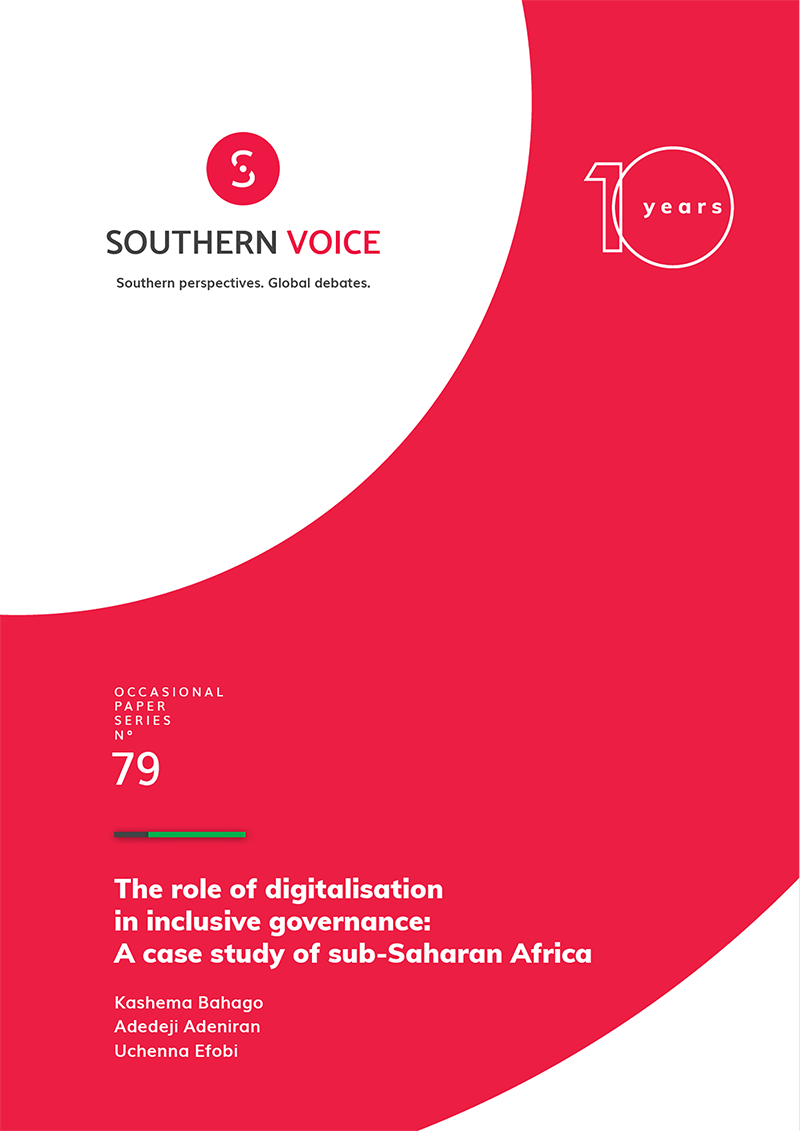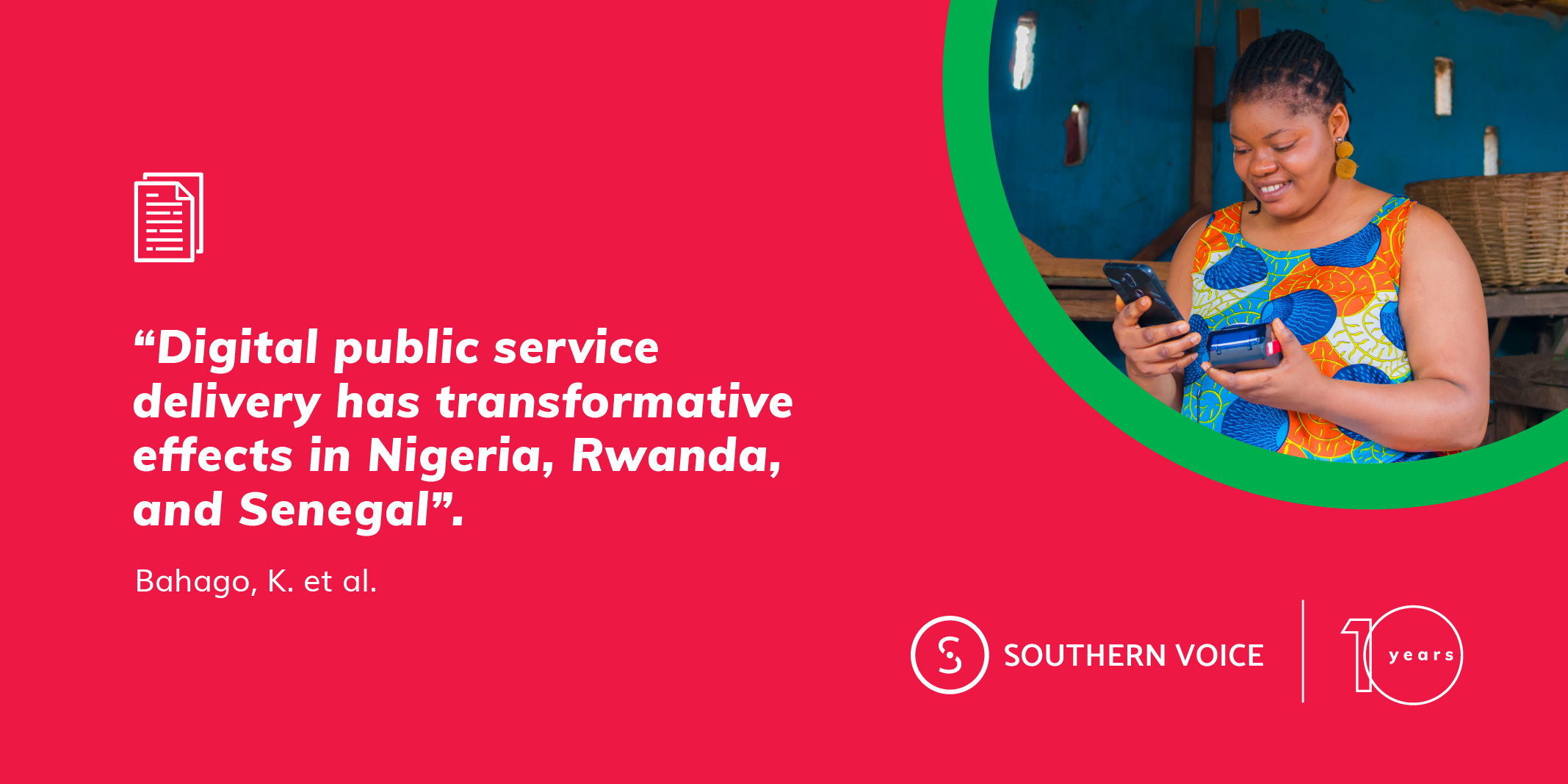What does the future of African agriculture look like? Will it be able to meet the demand of a population…

This study discusses the transformative impact of technology on society and on understanding how technological innovation in the public sector is driving citizens’ participation in governance.
The study also examines the roles of technology and governance in sustainable development. It highlights the importance of promoting an institutional framework that fosters digital evolution. The authors argue it is the key to inclusive and sustainable growth, improved governance, and responsive service delivery.
The paper focuses on three sub-Saharan countries—Nigeria, Rwanda and Senegal. It evaluates the contexts of digital transformation and governance to link the two, and develops a framework to guide the discussion on inclusive digital transformation in government. In addition, a rigorous evaluation of current policies, combined with expert interviews, was conducted to highlight how these issues interact to attain sustainable development. We argue that realising the benefits from the growing utilisation of digital technology for public policy service delivery will depend on the extent to which such transformation accommodates all sections of society (inclusivity) or excludes certain fragments of society (exclusivity). Achieving inclusivity through technology in public service delivery will depend on efficient political institutions that limit elite capture, as well as manoeuvring of the system to further consolidate political power, and demagoguery.


